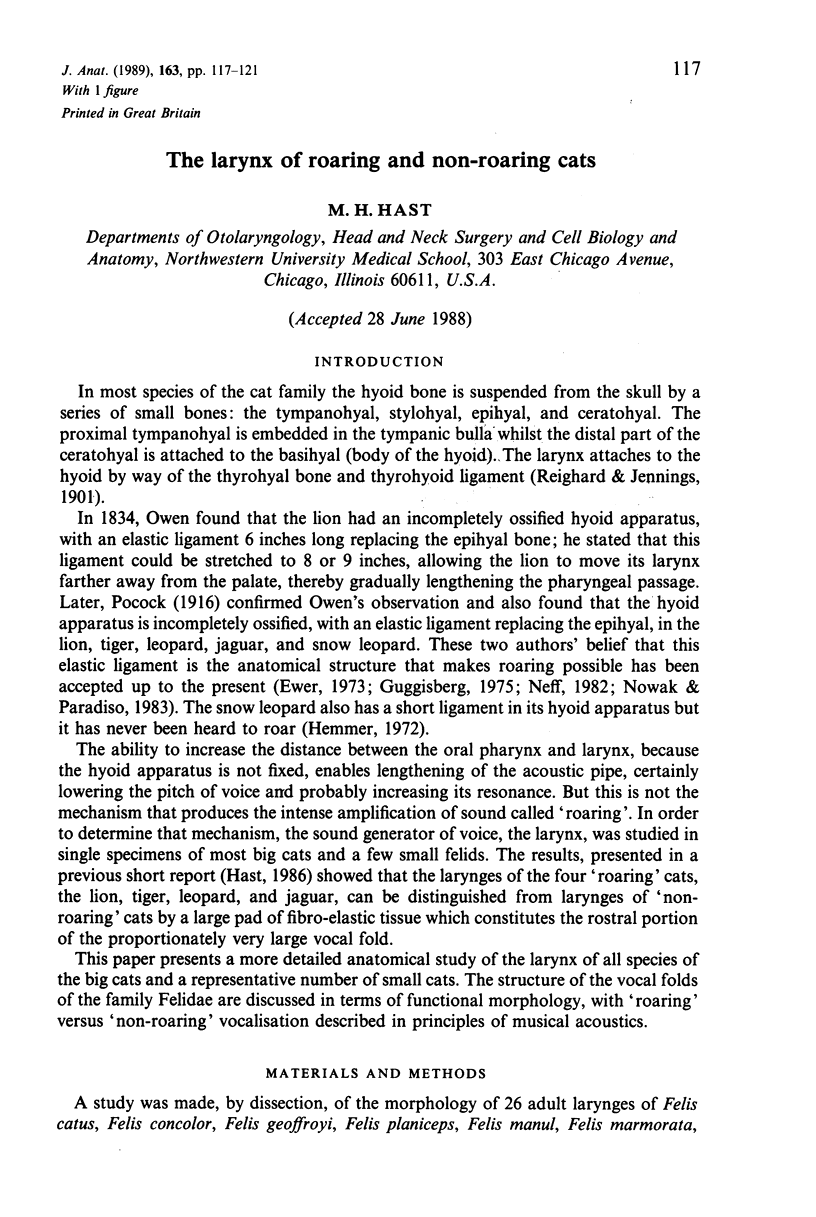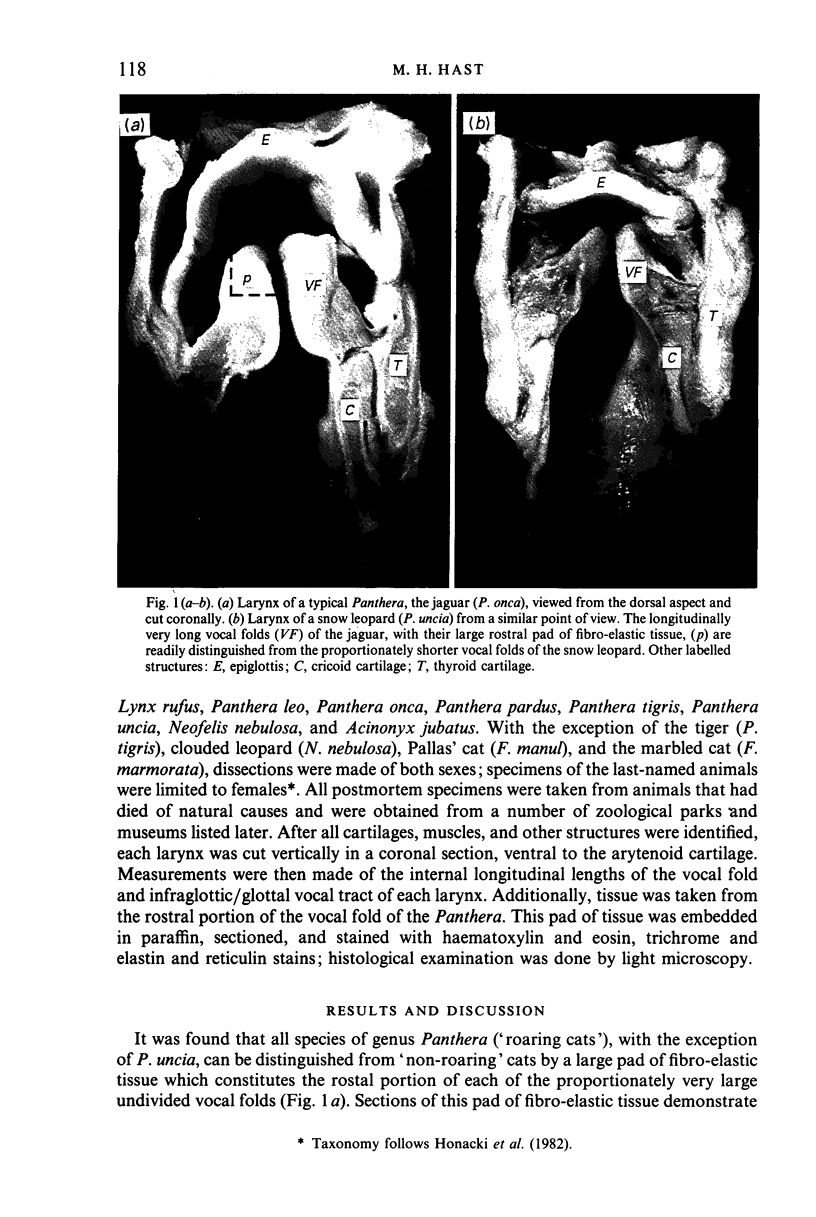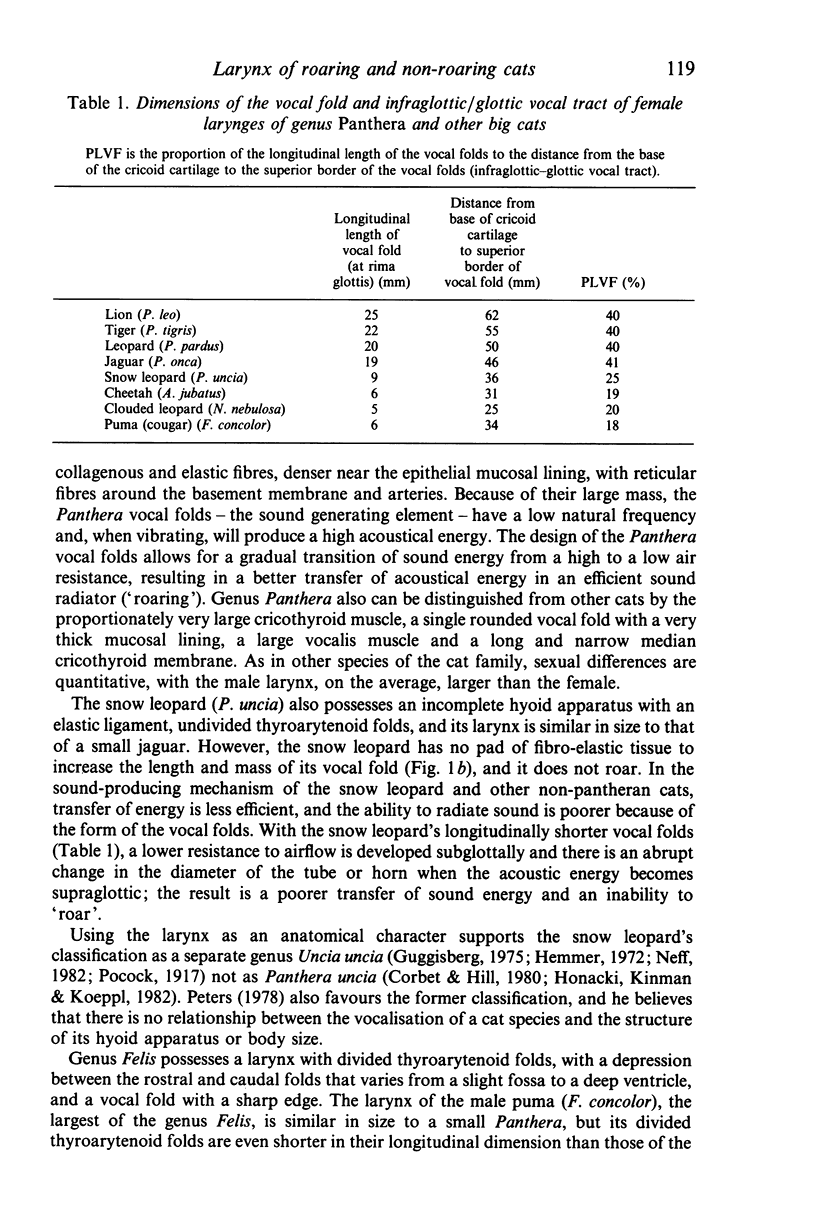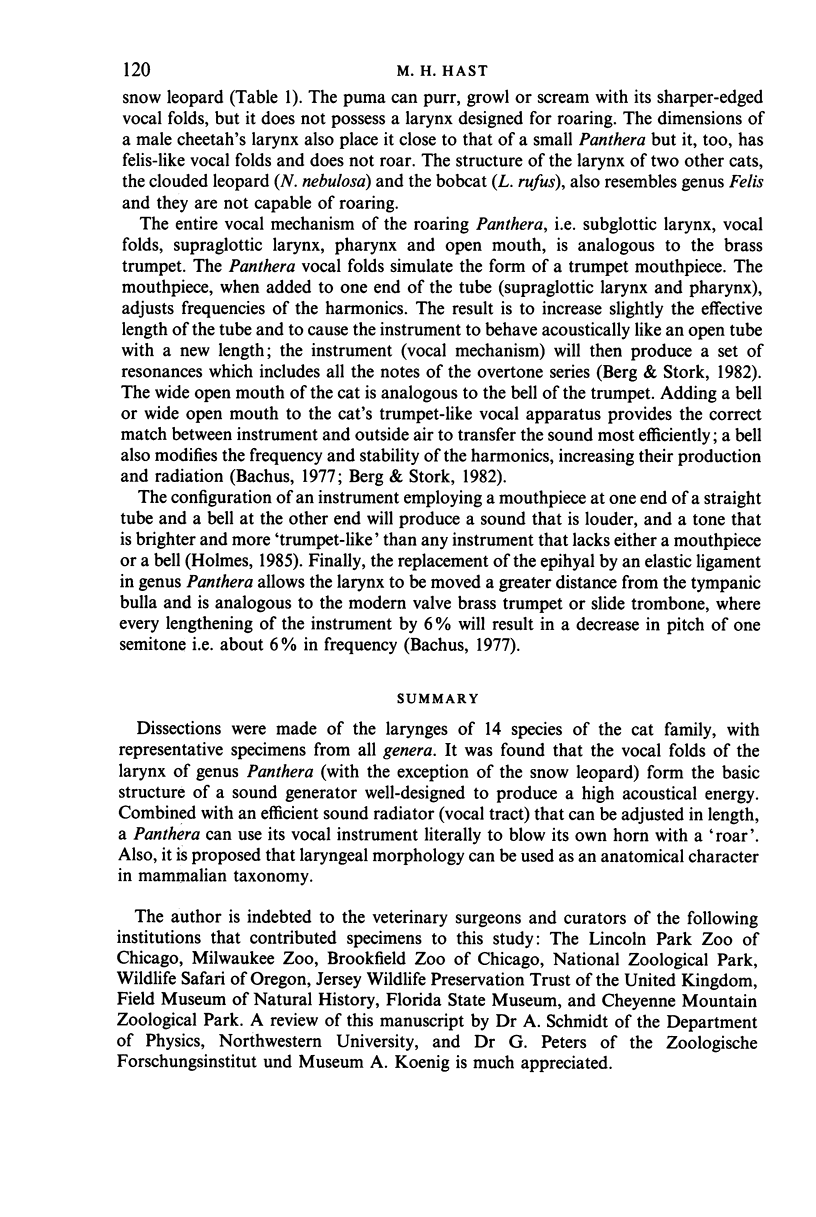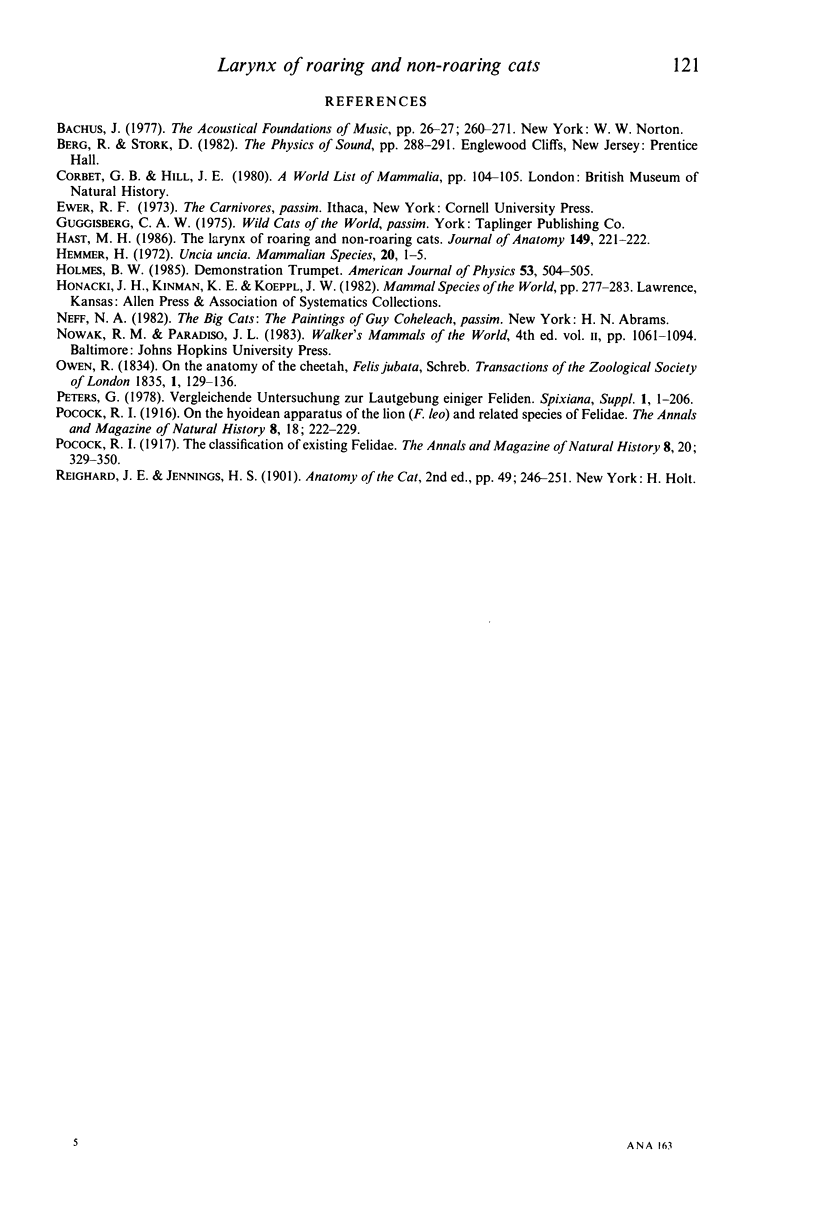Abstract
Dissections were made of the larynges of 14 species of the cat family, with representative specimens from all genera. It was found that the vocal folds of the larynx of genus Panthera (with the exception of the snow leopard) form the basic structure of a sound generator well-designed to produce a high acoustical energy. Combined with an efficient sound radiator (vocal tract) that can be adjusted in length, a Panthera can use its vocal instrument literally to blow its own horn with a 'roar'. Also, it is proposed that laryngeal morphology can be used as an anatomical character in mammalian taxonomy.
Full text
PDF